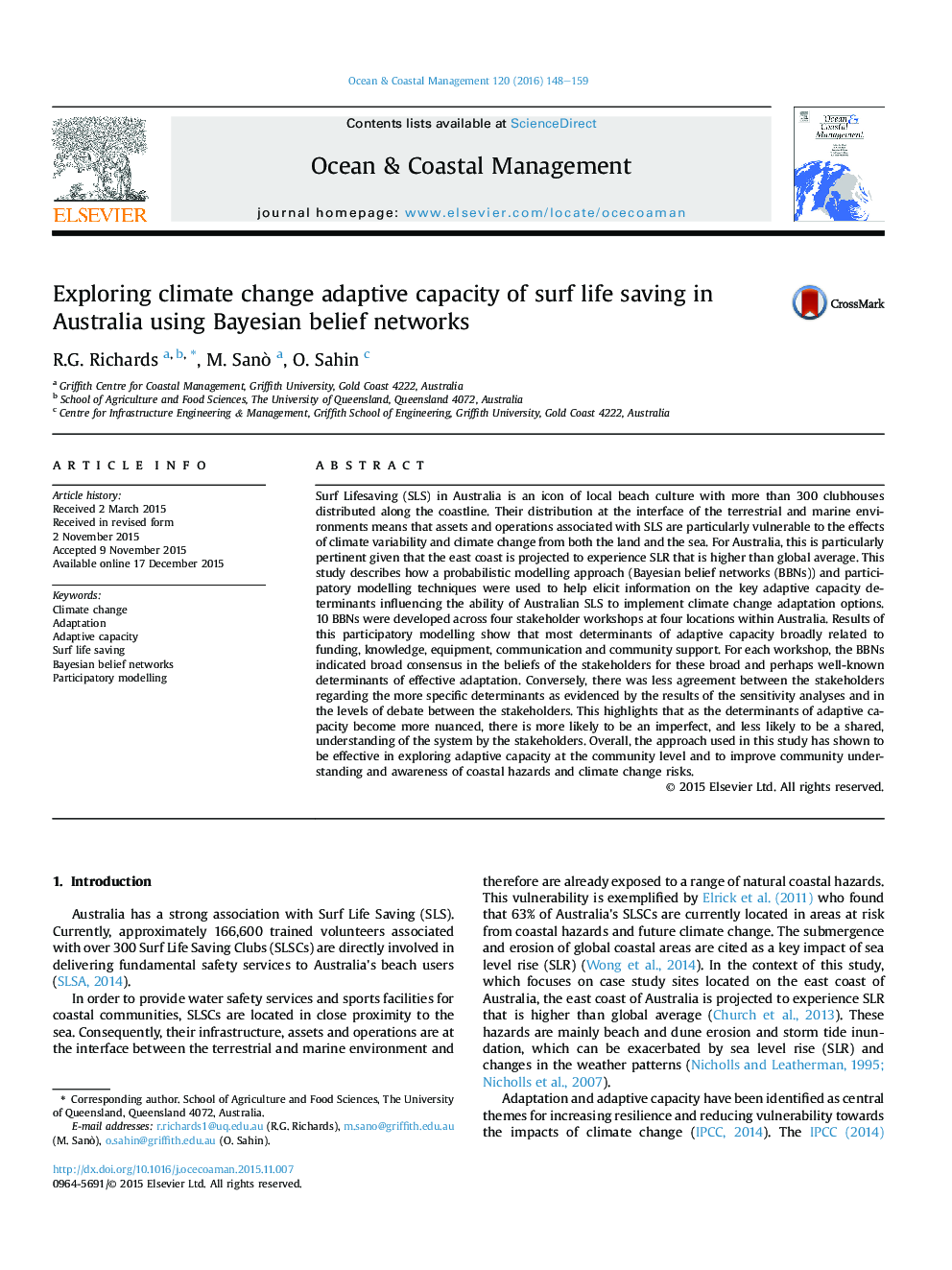| کد مقاله | کد نشریه | سال انتشار | مقاله انگلیسی | نسخه تمام متن |
|---|---|---|---|---|
| 8061201 | 1520509 | 2016 | 12 صفحه PDF | دانلود رایگان |
عنوان انگلیسی مقاله ISI
Exploring climate change adaptive capacity of surf life saving in Australia using Bayesian belief networks
ترجمه فارسی عنوان
بررسی ظرفیت سازگاری با تغییرات آب و هوایی صرفه جویی در گشت و گذار در استرالیا با استفاده از شبکه های اعتقادی بیزی
دانلود مقاله + سفارش ترجمه
دانلود مقاله ISI انگلیسی
رایگان برای ایرانیان
کلمات کلیدی
تغییر آب و هوا، انطباق، ظرفیت سازگاری، صرفه جویی در زندگی گشت و گذار، شبکه های اعتقادی بیزی، مدل سازی مشارکتی
موضوعات مرتبط
مهندسی و علوم پایه
علوم زمین و سیارات
اقیانوس شناسی
چکیده انگلیسی
Surf Lifesaving (SLS) in Australia is an icon of local beach culture with more than 300 clubhouses distributed along the coastline. Their distribution at the interface of the terrestrial and marine environments means that assets and operations associated with SLS are particularly vulnerable to the effects of climate variability and climate change from both the land and the sea. For Australia, this is particularly pertinent given that the east coast is projected to experience SLR that is higher than global average. This study describes how a probabilistic modelling approach (Bayesian belief networks (BBNs)) and participatory modelling techniques were used to help elicit information on the key adaptive capacity determinants influencing the ability of Australian SLS to implement climate change adaptation options. 10Â BBNs were developed across four stakeholder workshops at four locations within Australia. Results of this participatory modelling show that most determinants of adaptive capacity broadly related to funding, knowledge, equipment, communication and community support. For each workshop, the BBNs indicated broad consensus in the beliefs of the stakeholders for these broad and perhaps well-known determinants of effective adaptation. Conversely, there was less agreement between the stakeholders regarding the more specific determinants as evidenced by the results of the sensitivity analyses and in the levels of debate between the stakeholders. This highlights that as the determinants of adaptive capacity become more nuanced, there is more likely to be an imperfect, and less likely to be a shared, understanding of the system by the stakeholders. Overall, the approach used in this study has shown to be effective in exploring adaptive capacity at the community level and to improve community understanding and awareness of coastal hazards and climate change risks.
ناشر
Database: Elsevier - ScienceDirect (ساینس دایرکت)
Journal: Ocean & Coastal Management - Volume 120, February 2016, Pages 148-159
Journal: Ocean & Coastal Management - Volume 120, February 2016, Pages 148-159
نویسندگان
R.G. Richards, M. Sanò, O. Sahin,
